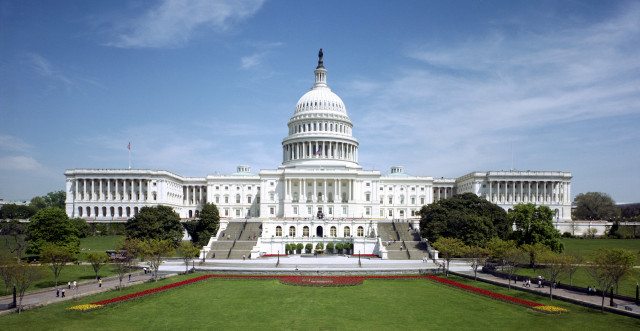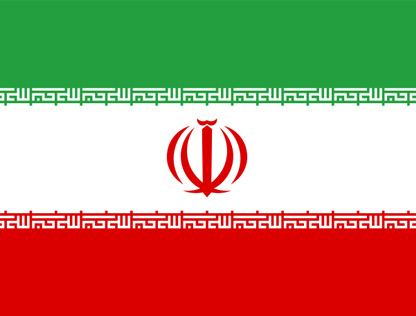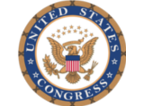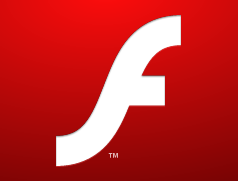TikTok CEO, Shou Zi Chew, has been called by the House Energy and Commerce Committee in March to testify over the company's relation with the Chinese Communist Party, data security privacy, and more.
Congress RSS
The U.S. government has denied the Army's request to purchase almost 7,000 HoloLens headsets for $400 million following some poor on-field test results including nausea and headaches for soldiers.
Twitter CEO Jack Dorsey will be stepping down from his executive position from Twitter and continuing his position as CEO of digital payments company Square according to a report.
Supported by Mozilla, the NYU Ad Observatory will testify in Congress today, emphasizing the need for better laws for researchers. Its study on political ads was banned by Facebook over a month ago.
Microsoft has announced some changes to its PAC, a major one being suspending donations to Congress members who voted against election certification for the "duration of the 2022 election cycle".
The CEOs of Amazon, Apple, Facebook, and Google will attend a virtual meeting of the House Judiciary on Wednesday at noon local time. The meeting was rescheduled from Monday, July 27.
The hearing was due to question the companies' dominance in their fields and determine whether they had unfairly disadvantaged their competition. All four executives are expected to appear virtually.
A group of technology firms and groups have called on the House of Representatives to pass a legislative amendment that would prevent the government from obtaining web browsing data without a warrant.
Google's CEO, Sundar Pichai, is due to go before Congress on Tuesday. The speech that he is set to deliver has already been published so you'll be able to read it in advance of the event itself.
U.S. lawmakers have written to the CEO of Google, Sundar Pichai. They expressed their concerns over the Google-Huawei partnership because of links they said Huawei has to the Chinese Communist Party.
Mark Zuckerberg is set to testify on issues that have been plaguing Facebook for the past year. There will be two different sittings on Tuesday and Wednesday. Read on to learn how to watch them.
The FCC's decision to kill net neutrality in December has finally appeared in the Federal Register today, meaning that the ruling will go into effect in 60 days, unless Congress does something.
In a series of open letters, the United States Congress has questioned the bungling of the embargo for Meltdown and Spectre by various tech firms, including Microsoft, Intel, Apple, and Google.
Mozilla has filed a petition with a federal court in Washington, D.C. over a recent decision to overturn the 2015 Open Internet Order. Mozilla is urging people to contact their representatives too.
Stories are appearing all over about the Senate being one vote away from bringing the resolution to overturn the net neutrality repeal to a full membership vote. That is not even half the battle.
Politicians continue to pressure AT&T to distance itself from the Chinese tech company over national security concerns. The latest move is to get the wireless carrier to nix collaboration on 5G.
The Cupertino-based tech giant is coming under increasing scrutiny as four more U.S. lawmakers have now sent letters to the company seeking more information on its admitting to slowing older phones.
The FCC's repeal of net neutrality is still more than 60 days away, which has given Senators seeking to overturn the ruling time to gather enough co-sponsors on a bill to force a full Senate vote.
The loss of net neutrality has Congress scrambling for a bill to take the onus off the FCC and make regulation of ISPs a law. But the first bill introduced does little to offer consumers protection.
The debate on net neutrality heats up as Congress sends an invite to a multitude of tech CEOs. They are expected to testify on the matter as well as Title II classifications enacted by Obama in 2015.
Two former aides to a congresswoman are being charged with cyberstalking and obstruction of justice for having allegedly stolen nude images from her iPhone and posting them online.
The US House of Representatives agreed to repeal the FCC's broadband privacy rules with a 215 to 205 vote on Tuesday. For this bill to now become official, it only needs the President's signature.
Activists from Fight for the Future have launched a new tech support hotline for non-technology-savvy members of Congress who are clueless about last week's DDoS attacks.
The US Supreme Court has ruled in favor of changes to some of the rules governing how the government can hack into devices. The new rules allow judges to give warrants outside of their jurisdictions.
Four major technology coalitions, representing the biggest companies in the business, have written an open letter to the Select Committee on Intelligence regarding the current push to end encryption.
Satya Nadella, Microsoft's CEO, is meeting with a number of republicans in Congress to discuss major issues of the day and Microsoft's position on them, such as immigration and privacy reform.
TechNet, a lobbying firm representing Microsoft, Google, Yahoo and more, have sent a letter to Congress in support of the controversial Cyber Intelligence Sharing and Protection Act.
After more than a year of investigation, it seems that the FTC feels Google has been exploiting its position at the top of the market to ensure that rival services do not get a chance to oppose.
ZTE, a Chinese phone vendor, has been caught selling CISCO gear to Iran which goes against sanctions placed upon Iran and was planning to cover up the operation. Congress now wants to ban ZTE products
The U.S. House of Representatives' Intelligence Committee will release a report today that claims that products made by Chinese-based ZTE and Huawei should be kept out of the US for security reasons.
A bipartisan coalition of US Representatives is demanding answers about the lack of transparency regarding dubious copyright claims and the possibly illegal seizure of several domain names.
After the Republican party managed to reject the Cybersecurity Bill in Congress, indications have suggested Obama could issue an executive order for the bill, completely cutting Congress out.
CISPA, the bill hailed as 'the new SOPA,' passed through Congress by a healthy margin, despite cries from privacy advocates, and the Obama administration's threats to veto the bill.
A new piece of legislation is causing an uproar among privacy advocates regarding the bill, which encourages ISPs to share information regarding cybersecurity threats and piracy with the government.
Two United States Congressmen proposed a bill on Monday that would require most video games to carry a warning label, similar to those found on cigarettes, but cautioning about violent content.
Google has been called to Congress to talk about its new privacy policy but dont think about trying to attend as this meeting will be held behind closed doors.
Opposition to SOPA and PIPA continues to grow in the House of Representatives, while the Senate has more supporters of the bills than opponents as of Thursday evening.
Some of the proponents behind the Stop Online Piracy Act aren't practicing what they're preaching, as IP ranges coming from the US House of Representatives were traced to illegal downloads.
SOPA author Lamar Smith has released a list of his supporters. While they're mostly media companies, law firms and publishing companies, there are a few interesting exceptions.
The U.S. House Energy and Commerce Committee is hold a hearing on Friday to deal with spectrum and public safety problems. Key Republican lawmakers have released a draft of spectrum auction and public safety band...














_medium.jpg)





































